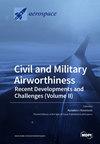Refined Aircraft Positioning Based on Stochastic Hybrid Estimation with Adaptive Square-Root Unscented Particle Filtering
IF 2.1
3区 工程技术
Q2 ENGINEERING, AEROSPACE
引用次数: 0
Abstract
The positioning of civil aviation aircraft relative to a geographic reference point on Earth in a Cartesian frame is significant to detect the deviations from the desired path, especially for high-altitude airports or special airports based on performance-based navigation (PBN). To obtain these critical deviations during aircraft approach and landing, it is fundamental to estimate the continuous flight variables and discrete flight modes simultaneously with enough accuracy. With the coordinate conversion between the North, East, and Down (NED) frame and the geographic coordinate system based on World Geodetic System 1984 (WGS-84) considered, this study proposed a non-linear stochastic hybrid estimation algorithm with adaptive square-root unscented particle filtering (ASR-UPF) to estimate the true path. The probabilities of mode transition, represented by the normal cumulative density function of continuous states, determine whether to proceed with mode transitions. In addition, the adaptive update characterized by tracking variable noise and the importance sampling distributions based on the results of square-root unscented Kalman filtering (SR-UKF), as a comparative study of continuous system filtering, were used. The experiments illustrated the ASR-UPF is able to reduce the state estimation error more effectively, and more promptly track the error caused by incorrect mode estimation with adaptability compared to the SR-UKF. A further test with real flight data indicates that the proposed method gives the refined estimation of position and azimuth in NED frame.基于随机混合估算与自适应平方根无香料粒子滤波的改进型飞机定位系统
民航飞机在笛卡尔框架内相对于地球上某一地理参考点的定位,对于检测理想航线的偏差具有重要意义,特别是对于高空机场或基于性能导航(PBN)的特殊机场。为了在飞机进场和着陆时获得这些关键偏差,必须同时对连续飞行变量和离散飞行模式进行足够精确的估算。考虑到北、东、下(NED)框架与基于 1984 年世界大地测量系统(WGS-84)的地理坐标系统之间的坐标转换,本研究提出了一种非线性随机混合估计算法,该算法采用自适应平方根无cented 粒子滤波(ASR-UPF)来估计真实路径。模式转换概率由连续状态的正态累积密度函数表示,决定是否进行模式转换。此外,作为连续系统滤波的比较研究,还使用了以跟踪可变噪声为特征的自适应更新和基于平方根无特征卡尔曼滤波(SR-UKF)结果的重要性采样分布。实验结果表明,与 SR-UKF 相比,ASR-UPF 能够更有效地减少状态估计误差,并能更及时地跟踪由不正确的模式估计引起的误差,具有很强的适应性。利用真实飞行数据进行的进一步测试表明,所提出的方法能在 NED 框架内对位置和方位角进行精确估计。
本文章由计算机程序翻译,如有差异,请以英文原文为准。
求助全文
约1分钟内获得全文
求助全文
来源期刊

Aerospace
ENGINEERING, AEROSPACE-
CiteScore
3.40
自引率
23.10%
发文量
661
审稿时长
6 weeks
期刊介绍:
Aerospace is a multidisciplinary science inviting submissions on, but not limited to, the following subject areas: aerodynamics computational fluid dynamics fluid-structure interaction flight mechanics plasmas research instrumentation test facilities environment material science structural analysis thermophysics and heat transfer thermal-structure interaction aeroacoustics optics electromagnetism and radar propulsion power generation and conversion fuels and propellants combustion multidisciplinary design optimization software engineering data analysis signal and image processing artificial intelligence aerospace vehicles'' operation, control and maintenance risk and reliability human factors human-automation interaction airline operations and management air traffic management airport design meteorology space exploration multi-physics interaction.
 求助内容:
求助内容: 应助结果提醒方式:
应助结果提醒方式:


